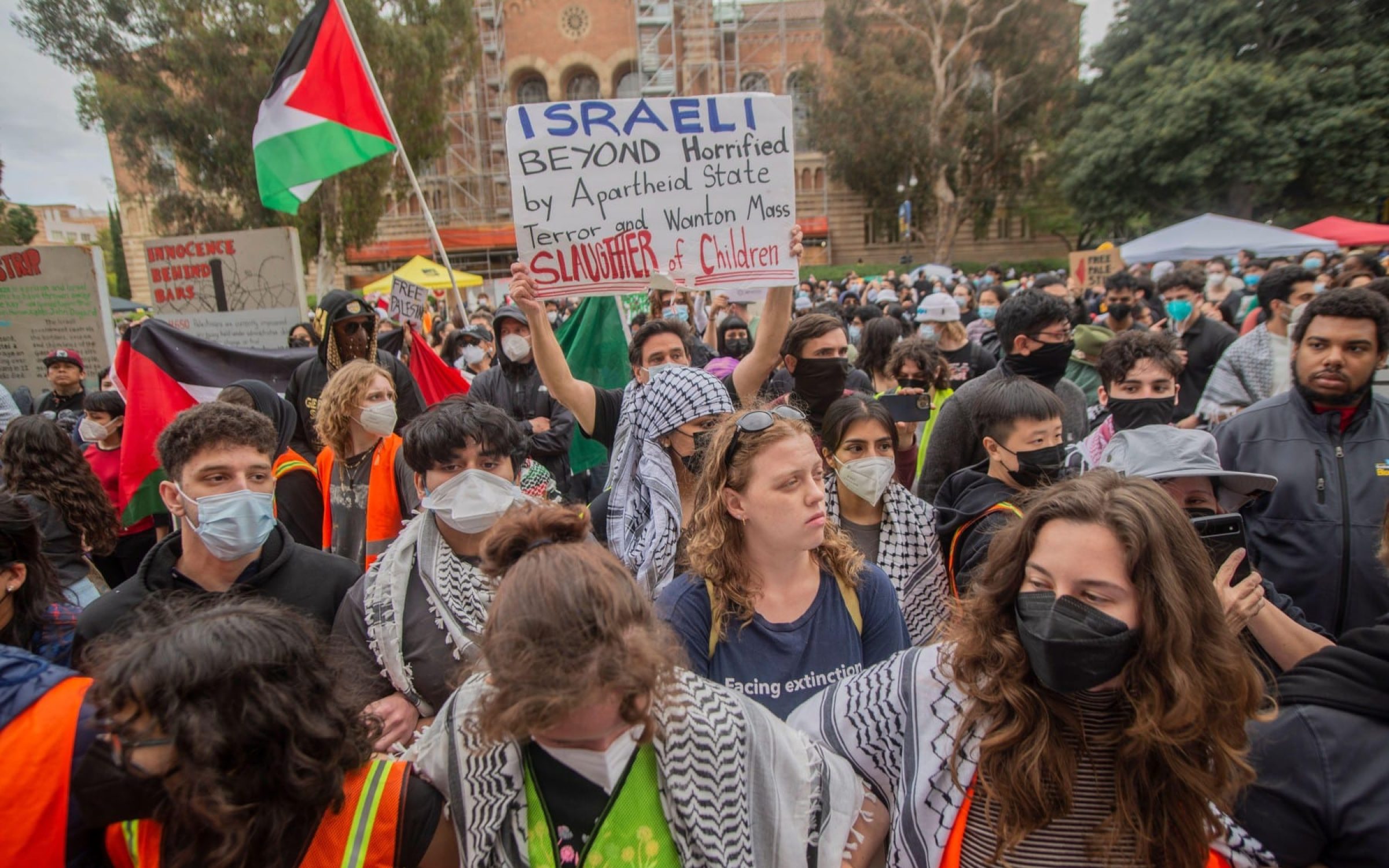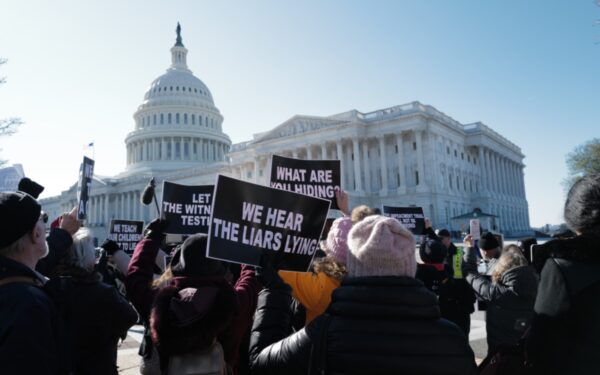When I was a student I always found it hard to take students and student life seriously. It was still the Young Ones era. Shambolic houses – one notorious local pad had a self-referential sign declaring it “Wuthering Depths”. All very “No way Harpic! No way Dot!”, ostentatious grant poverty and politics that manifested in infantile ways.
The causes were easy to enumerate. Ban the Sun! The newspaper that is, not the orange thing, which, in 1980s northern England had largely gone into self-imposed exile anyway. Thatcher out! A rare alliance between town and gown where I was in Yorkshire. Brits out of Ireland! And, inevitably, being cross with Barclays for banking anyone called Van Der Merwe.
There was much in the way of skinny white arms in black t-shirts and The Smiths drifting from late-night windows. The very Establishment trembled. All easily dismissed. And as the Thatcher tanks rolled remorselessly on to election victory after election victory, it was clear that power lay with Essex man, not the fella skipping in and out of NUM headquarters with a scowl on his face and something odder on his head.
This was a mistake, of course. The tide forever turns. Often slowly. Inch by creeping inch. Until, there, you’re up to your neck in it. And I can’t help but feel an inundation has returned as I watch events at Columbia University and UCLA.
There is, in every student of a certain disposition, a lurking soixante-huitard. Forever, convinced that, in glorious alliance with the working man, a revolution is imminent. Aux armes les citoyens, formez vos bataillons!
The difficulty history has posed these Street Fighting Men in recent years is that prosperity, gentrification and professionalisation have placed greater emphasis on actually doing stuff that might qualify you for a job in an increasingly technocratic world. A struggling arts graduate speaks. But now, in the Israel-Hamas war, an opportunity has presented itself to go full Vietnam and dress what looks like something rather more sinister in the clothing of anti-war protest. “Hell no, we won’t go.” Except, of course, nobody is asking them to.
In the meantime, the wannabe successors to student protest at Kent, Ohio, the Sorbonne and Grosvenor Square – who will go on to rule the world – are ignoring the fact that student shenanigans have a very short shelf life. As they say, start life with the Guardian, end it with the Telegraph.
The sceptical Malcolm Bradbury, David Lodge and Philip Roth have now been replaced by former BBC executives in Britain and something even worse in America where academia seems tortured on a rack of competing interest groups looming over the agonised student body.
There may well be things to object to in the unedifying footage emerging from Gaza. Cold children being hauled from the rubble seems unlikely to bring matters to a conclusion in the long term. But the tie-up between the radical Left, antisemitism and student activism which seems to be what we’re witnessing on various US campuses, is not new but greatly invigorated. It’s all about capitalism, d’ya see? Odd that America once regarded Jewish émigrés fleeing Europe as replete with dangerous socialist ideas and destined for the film industry and McCarthy.
But detaching that particular issue from the seemingly never-ending media coverage of universities proscribing, de-platforming, banning and disciplining views and people with whom they disagree, it seems that outside the extreme specifics of Columbia and UCLA , universities, pausing only to take donations LSE-style from regimes like Libya, are caught fully in the contradictions of who they allow to speak and who they don’t.
This, of course, is the paradox of free speech. Some mandatory Churchill coming up but his point is a timeless one; “Some people’s idea of free speech is that they are free to say what they like, but if anyone says anything back, that is an outrage.”
Acknowledging this truth, universities at one time indulged callow student positions as precisely that and saw them as notions that might be laid down in the cellar to mature into something more palatable later. And that demanded a certain even-handedness. But recent university over-indulgence of one “progressive” side at the expense of the other has led to a sense of licence that has unleashed the hell we are witnessing now with professional agitators running to the student bonfire with a can of petrol.
Some day, doubtless, an ageing alumnus will look back in nostalgic pride at “the day I manned the barricades”, chuckling at their folie de jeunesse but complaining that “today’s students just don’t seem angry enough about anything!”
But the worrying thing is that they are and, mandatory Kennedy: “Leadership and learning are indispensable to each other.” What’s being taught to those leaders? What are they learning? And what the hell does that mean for the rest of us?
Write to us with your comments to be considered for publication at letters@reaction.life




